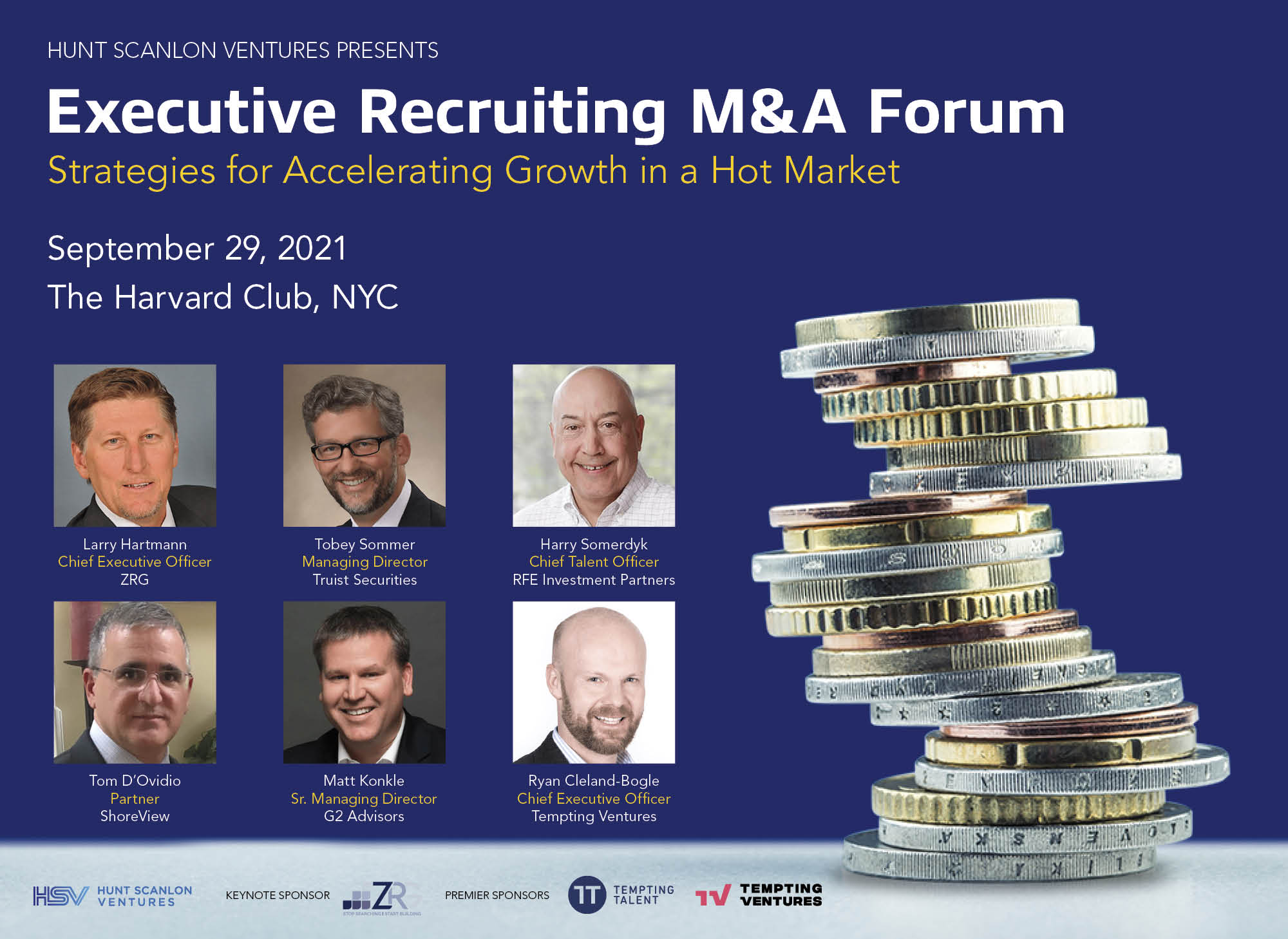Booming Private Equity Sector Feeds TritonExec’s Expansion to the U.S.

June 21, 2018 – Aside from the big-branded executive recruiters, all of whom devote significant time and manpower to talent acquisition initiatives throughout the PE space, a number boutique search firms are working alongside these investment brands to provide talent up and down the functional scale. And much of the activity is taking place on American shores.
Following that demand, London-headquartered executive search firm TritonExec has expanded its private equity practice into the U.S. by opening new offices in Atlanta and New York. The U.S. expansion will be led by partner Abe Doctor. The firm noted that its private equity practice has been the fastest growing segment of TritonExec’s business.
“The $12 million turnover business, which is focused on digital and professional services and private equity, is also expanding its global headcount from the current team of 25 to 40 over the next year,” the firm said. In early 2018, TritonExec reported that it had $20 million in new contracts lined up over the next 24 months.
“Companies acquiring others through private equity deals are looking to strengthen their new investments with seasoned operators in their markets, so we expect this to be one of our busiest growth areas for a number of years to come,” said Mr. Doctor. “A decade ago, the trend was to buy and sell in a relatively short space of time, whereas we’re now seeing a drive to embrace digital, especially for more traditional industries, as a means of adding value for their eventual resale.”
He described this as a boon to the firm’s digital officers practice which it expects to grow to serve the ever-expanding pool of global companies embracing digital proficiency. “Digital acumen across these areas of investment for non-digital industries is increasingly important for CEOs and executive chairmen of private equity portfolio businesses,” said Mr. Doctor.
TritonExec has managed to carve itself a niche in this competitive sector. The business embraces technology to predict and uncover subtle trends in compensation, diversity and talent shortages, as well as help to determine which candidates are most likely to succeed in certain organizations. The firm holds a track record retention rate of 96 percent within a 24-month period, from placements made with its multinational clients, according to its own statistics.
Global Consultants
Established in 2011, TritonExec has assisted in the recruitment of candidates all over the globe, with most placements (60 percent) being made in the U.K. and the U.S., followed by the rest of Europe and the Nordics (35 percent) and Asia (five percent). Its client list includes Capgemini, Accenture, Deloitte, Icahn Enterprises, Gryphon Investors, and its very first client, Genpact. At the beginning of the second quarter, OakNorth bank completed a debt finance deal with TritonExec, which is to be invested in marketing, technology and infrastructure.
 Big Growth in Store as Executive Recruiters Slowly Adapt to Automated Technologies
Big Growth in Store as Executive Recruiters Slowly Adapt to Automated Technologies
The executive search industry’s leading 50 players in the Americas once again surpassed $3 billion in revenues last year, according to industry newsletter ESR, in a market intelligence briefing just released by Hunt Scanlon Media.
Mr. Doctor is now responsible for the direction of TritonExec’s North American operations based in Atlanta. He focuses on partner-level retained search assignments, CIO and CTO engagements, as well as multi-hire recruitment programs for professional services clients, private equity portfolio companies and the Fortune 500. Mr. Doctor joined TritonExec in 2016 from Korn Ferry where he was principal and practice leader in the global IT & professional services group there. With nearly 10 years of executive recruitment and talent advisory experience, he has worked with management and strategy consultancies, technology services and outsourcing firms, and his portfolio has included searches in digital, business transformation, analytics and strategy consulting.
Related: Recruiters See Heightened Demand for Private Equity Portfolio Leaders
Mr. Doctor recently sat down with Hunt Scanlon Media to discuss executive search within the private equity space and TritonExec’s recent expansion into North America.
———————————————————————
 Abe, what led to the firm’s expansion into the U.S.?
Abe, what led to the firm’s expansion into the U.S.?
Our expansion into North America was always the natural first step and a necessary one as part of our drive to scale our business globally – America has always been our main market of interest. Remarkably, however, we were able to expand here in our early years without having a physical presence. Our clients that we began working with in Europe were global businesses and were investing in North America. That’s where they saw their own growth happening. Eventually, we reached a point where we had consecutive years of multimillion dollar revenues in the U.S., and our physical presence became absolutely necessary – New York, Atlanta and San Francisco are where many of our clients are based, so those locations were important to us.
Related: Ward Howell International Launches Private Equity Recruiting Practice
Discuss some current searches you’re working on.
We are the primary executive search firm for all CIO and digital and cybersecurity executives for one of the world’s most prominent billionaire activists and private equity firm owners – and are currently leading CIO and chief cybersecurity officer searches for their multi-billion dollar portfolio businesses. Other roles include:
- CEO for a private equity backed, CFO advisory firm based in San Francisco that specializes in the VC and pre-IPO markets
- Global CIO for a leading digital and strategy consultancy with nearly $10 billion in revenues
- Executive chairman and private equity operating partner to head up the industrial technology portfolio for a leading middle market private equity firm
- In the fast growing fintech space of consumer finance and lending, global head of strategy & partnerships and alliances for the leading NYSE-traded company which recently had its IPO.
“Our clients that we began working with in Europe were global businesses and were investing in North America. That’s where they saw their own growth happening.”
Do you foresee more future growth within the U.S. or in other regions?
Absolutely. Having established our U.S. base in Atlanta, and our second office most recently in New York City, our 18-month strategy includes expansion to San Francisco (where many of our global clients are headquartered). In addition to expanding to new regions in the U.S., our growth strategy includes tripling the size of each office (including London) over the next 24 months.
 Marlin Hawk Builds Winning Strategy on Finding Transformational Leaders
Marlin Hawk Builds Winning Strategy on Finding Transformational Leaders
Six years ago, London-based Marlin Hawk sent Mark Oppenheimer, then just 27, to New York to establish an across-the-pond outpost for the enterprising leadership advisory firm. He had four years of experience as a researcher and the faith and …
Explain the leadership needs of portfolio companies within the private equity space. What functions and roles are hot?
In short: Supply chains, sales and industrial. Supply-chain technology is particularly important right now for private equity firms that own portfolios of similar and disparate companies; however, they’re looking to draw synergies between these businesses. So, for example, we’re seeing this synergy played out with private equity firms which may own distribution or manufacturing, who are then going on to buy retail businesses, and are connecting these through supply-chain technology. The operational levers which have been private equity’s bread and butter in improving businesses are not sufficient to keep up with the pace of the market. We’re finding firms have to find ways through supply chains to drive value. Another area includes sales and finding new channels and partnerships. Integration is essential for businesses acquiring other businesses. Therefore, we’re seeing private equity improving their assets once acquired. From our perspective, we enjoy and specialize in the middle-market private equity space. We feel that (within the middle market) you can see real and immediate impact on the businesses from the executives we place. We find these clients in the middle market value the executives as much as they value the right businesses they’re looking to acquire. Finally, industrial technology is another booming area for us.
Can you give us an overview of the current state of the private equity sector?
Right now there is so much dry powder (money to invest) in the PE space due to the fact that high net worth individuals, endowments and pension funds are putting their money less into traditional investment vehicles, like institutional investment firms, and more into PE firms as LPs (limited partners or investors in their funds).
With additional capital comes a lot of competition for attractive companies on the market. When that occurs, PE firms are overbidding and the multiples are very “frothy,” or in layman’s terms, over paying for companies compared to historic, expected multiples. Now that sellers are getting many attractive bids for their company, it has become less about who will pay the most money for the asset, but more about which firm will get us the best outcome and the best valuation after the hold period. We have found that PE firms are now utilizing traditional executive search firms to help them to identify semi-retired executives with deep industry knowledge, operational expertise, and connections to advise them in the deal process. These advisors help them “win the deal” and ultimately convince management and owners that they are the right partners for the future of their companies because that executive will sit on the board and utilize their knowledge base and connections to help them hit their financial goals.
Related: Private Equity Firms Turn to Headhunters to Grow Portfolio Companies
Contributed by Scott A. Scanlon, Editor-in-Chief; Dale M. Zupsansky, Managing Editor; Stephen Sawicki, Managing Editor; and Will Schatz, Managing Editor – Hunt Scanlon Media












